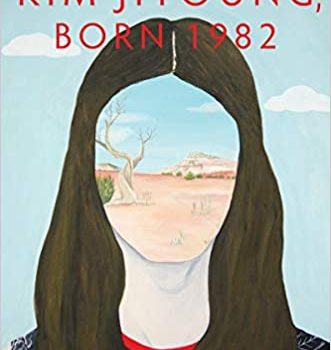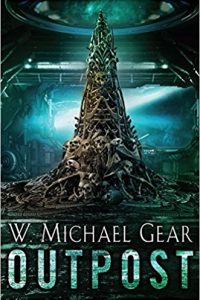Ian Mond Reviews Kim Jiyoung, Born 1982 by Cho Nam-Joo
 Kim Jiyoung, Born 1982, Cho Nam-Joo (Liveright 978-1-63149-670-7, $20.00, 176pp, hc) April 2020.
Kim Jiyoung, Born 1982, Cho Nam-Joo (Liveright 978-1-63149-670-7, $20.00, 176pp, hc) April 2020.
Since its publication in 2016, Cho Nam-Joo’s Kim Jiyoung, Born 1982 has sold over a million copies in South Korea, been touted as one of the country’s most important feminist novels, and sparked vicious attacks from anti-feminists, which were reignited when the book was adapted into a film in 2019. Given its popularity and the critical role the novel has played in South Korea’s #MeToo movement, I’m a little surprised it has taken four years to be translated into English (by Jamie Chang), but better late than never.
The novel and its title take the form of a psychiatric case-history. The subject, the titular Kim Jiyoung, is a woman in her thirties who, with her husband and daughter, lives an ordinary life in a ”small apartment on the outskirts of Seoul.” One morning Jiyoung starts exhibiting abnormal behaviour, flawlessly imitating her mother, ”down to her signature right-eye wink when she was asking for a favour, and the elongated last syllable of Jung seobang.” Her husband thinks it is a joke until Jiyoung does the impossible and perfectly mimics a woman she has never met, a college friend of her husband who has since passed away. ”And here was his own wife bringing it back – a scene from a sunny afternoon twenty years before that only two people in the world knew about.” In a bid to understand what is causing these dissociative episodes, Jiyoung begins to see a psychiatrist. During the sessions, she narrates her life story, gradually revealing the sexism and misogyny deeply embedded within Korean society.
Kim Jiyoung, Born 1982 is very deliberately not a subtle novel. This is signalled early on by the name Nam-Joo picks for her main character – Kim Jiyoung is the Korean equivalent of Jane Doe. As such, the discrimination, unwanted advances, and the outright sexual abuse Jiyoung experiences across every stage of her life are the sorts of indignities that Korean women would recognise because they’ve either experienced something similar or know someone who has. This includes being captured on a spy-cam hidden in the female toilets and having that footage uploaded to porn sites (a practice still common in Korea years after this book was published) or the godawful pejorative ”mum-roach” which refers to mothers who are perceived as mooching off their husbands and living the life of Riley. To each horrible example, including statistics detailing the paltry number of women who get management-level jobs in Korea, Nam-Joo provides links to her research – a range of articles from websites, news reports and journals. This means there are times when the book reads less like a novel and more like a stilted, formal essay. That’s also part of Kim Jiyoung, Born 1982‘s appeal; it’s precisely the footnotes and lack of nuance that has made the novel so incredibly influential.
Kim Jiyoung, Born 1982 does little to paint Korean men in a positive light. However, as the #MeToo movement has made abundantly clear, the prevalence of sexual harassment and violence toward women is not unique to one country. I would, therefore, like to think that the searing jolt provided by the novel would force men to recognise their culpability. Nam-Choo, even before she was attacked, bullied, and sent death threats by anti-feminists, was aware that men would choose to deny the truth rather than confront it. As a sting to her tale, the psychiatrist, who has been faithfully documenting Jiyoung’s story, admits he wasn’t cognisant of the discrimination and abuse women faced every day. He justifies this by arguing, ”it’s only natural that men remain unaware, unless they encounter special circumstances as I have, because men are not the main players in childbirth and childcare.” Of all the unpleasant, nasty, harrowing events Jiyoung describes, this asinine observation, one that reflets the thinking of so many men, hits the hardest.
This review and more like it in the June 2020 issue of Locus.
 While you are here, please take a moment to support Locus with a one-time or recurring donation. We rely on reader donations to keep the magazine and site going, and would like to keep the site paywall free, but WE NEED YOUR FINANCIAL SUPPORT to continue quality coverage of the science fiction and fantasy field.
While you are here, please take a moment to support Locus with a one-time or recurring donation. We rely on reader donations to keep the magazine and site going, and would like to keep the site paywall free, but WE NEED YOUR FINANCIAL SUPPORT to continue quality coverage of the science fiction and fantasy field.







